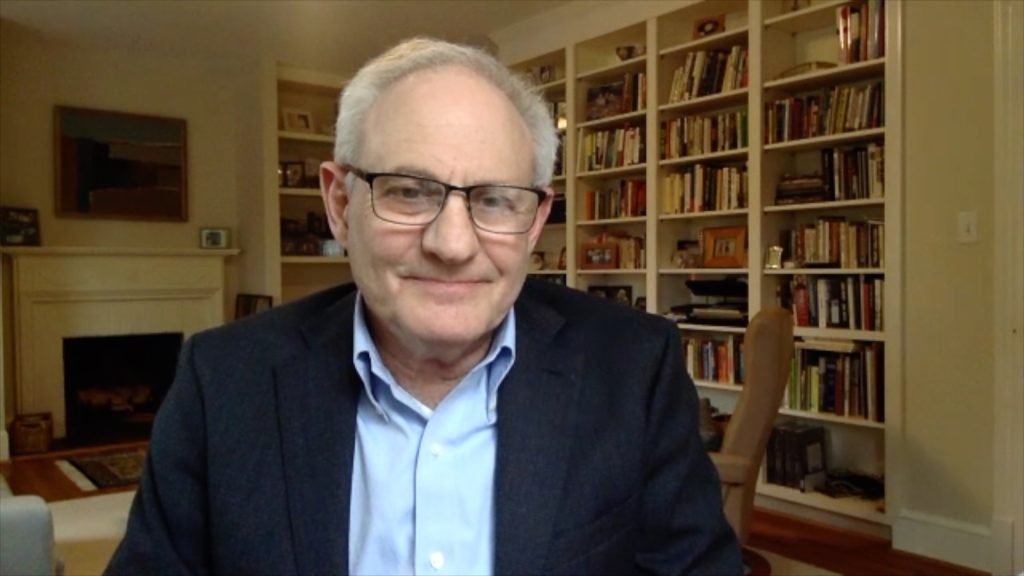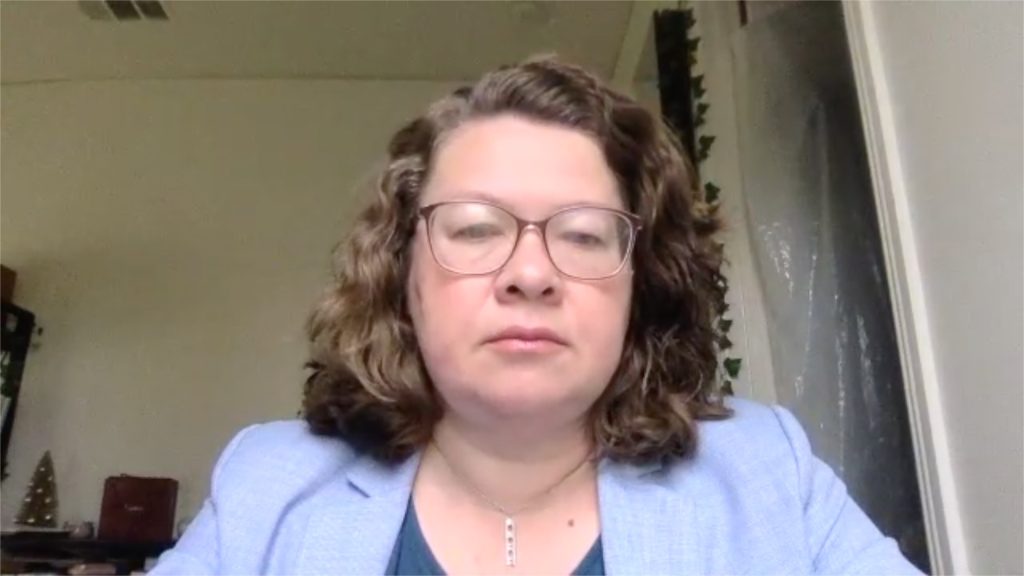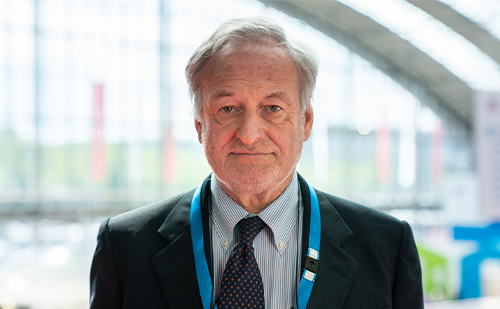Type 2 diabetes mellitus (T2D) and obesity are both linked with an increased risk of developing cancer, in this study researchers at Imperial College London investigated whether diabetes had an impact on patient outcomes when treated with immune checkpoint inhibitors. touchONCOLOGY were delighted to speak with Dr Alessio Cortellini (Fondazione Policlinico Universitario Campus Bio-Medico, Rome, Italy) around the aims, design and findings from his study investigating this link.
Questions
- What link exists between diabetes and risk of developing cancer? (0:18)
- What was already known about the association between type 2 diabetes mellitus (T2D) and clinical outcomes with immune checkpoint inhibitors? (1:15)
- What were the aims, design and inclusion criteria of your study? (2:19)
- What were the findings of your study and what impact did glucose-lowering medications have on patient outcomes with immunotherapy? (3:04)
- What insights did your study provide us around the tumour microenvironment in patients with T2D? (4:11)
- What questions remain unanswered and what future studies are planned? (4:58)
Disclosures: Alessio Cortellini has nothing to disclose in relation to this video interview.
Interview and filming supported by Touch Medical Media Ltd. Interview conducted by Victoria Jones.
For more information, the published study article is available to view here.
Transcript
What link exists between diabetes and risk of developing cancer? (00:19)
There is indeed a complex and intertwined relationship between type 2 diabetes, obesity, and metabolic syndrome and cancer, which is kind of bidirectional. First, diabetes and obesity can be seen as a risk factor for developing cancer because there are local and systemic changes related to the excess of visceral adipose tissue, insulin resistance and chronic high glucose levels that basically can lead to systemic inflammation and increased cellular stress in a sort of warburg effect, and then, second, I would also add that, with patients with early stage cancer, obesity has been historically linked to an increased risk of recurrence and death, especially in those cancers that are somehow hormonal-dependent, like prostate cancer, breast cancer, and colon cancer.
What was already known about the association between type 2 diabetes mellitus (T2D) and clinical outcomes with immune checkpoint inhibitors? (01:17)
Honestly, it wasn’t really obvious at first, I mean, considering the evidence about the suppressive effects of long-term diabetes about the innate and adaptive compartments of immunity, we could assume that a concomitant diagnosis of type 2 diabetes was associated with worse outcomes from checkpoint inhibitors. But actually, at the same time, there was evidence suggesting the opposite effect, a sort of paradoxical effect of obesity during ICI, so during this sort of treatments, according to which obesity and obese patients benefit more from immunotherapy than non-obese ones, purely because their sort of immune exhaustion was driven by the very same PD-1/PD-L1 axis that gets blocked by these agents, and our group were even among those who produced this evidence. So it wasn’t clear. It was a bit conflicting before this paper.
What were the aims, design and inclusion criteria of your study? (02:21)
This was a quite simple study. It was an observational study where we screened for the concomitant diagnosis of type 2 diabetes, a large multicenter cohort of almost 1,400 patients with advanced stage solid tumours, treated with immune checkpoint inhibitors, and then we ran a complex biostatistical analysis looking at their baseline blood glucose levels, diabetes medication, including metformin, and other parameters, like the neutrophil-to-lymphocyte ratio, which is a proxy of systemic inflammation, and we examined clinical outcomes according to these parameters.
What were the findings of your study and what impact did glucose-lowering medications have on patient outcomes with immunotherapy? (03:05)
Long story short, we found that patients with diabetes experienced the worst progression-free survival and overall survival from immune checkpoint inhibitors, and we also found that blood glucose levels were proportionally associated with the neutrophil-to-lymphocyte ratio and, of course, to systemic inflammation, some intriguing findings about the glucose lowering medications. Honestly, we couldn’t really ascertain the role of these medications because of associative bias, as, of course, patients exposed to these medications were those with type 2 diabetes only. However, we found a sort of more pronounced, detrimental effect in patients taking metformin specifically in comparison to those treated with other diabetes medications and insulin therapy, and that was independent of the actual glucose control and that was an interesting finding even though we couldn’t really explain it.
What insights did your study provide us around the tumour microenvironment in patients with T2D? (04:15)
We try to understand what was going on in there, especially within the tumour of patients with diabetes, because we were looking for mechanistic evidence. Therefore, we performed this targeted RNA analysis on tumour tissues of a subgroup of matched diabetic and non-diabetic patients. This analysis basically suggested a downregulation of gene signatures involved in adaptive and innate immunity in samples from patients with diabetes, along with a decreased expression of transcripts belonging to the inflammatory response and the modulation of T-cells.
What questions remain unanswered and what future studies are planned? (05:03)
A lot of questions actually remain unanswered because we, you know, diabetes is a very prevalent comorbidity for our patients. So we opened the Pandora’s box here probably. As I mentioned earlier, this complex interrelationship which see obesity, diabetes, lipid profile, physical activity, diet, the gut microbiome composition is very complex and probably just a single parameter like the BMI or glucose levels are clearly not enough to depict it, and I would also add that, from the preclinical point of view, we used to have mouse models but maybe these models may not be the best way to portray these complex interrelationships, the evolving condition of metabolic syndrome in a human being that lasts decades. So I’d say that from the point of view of clinical practice the message is clear, we should always try to pursue the optimal glycaemic control even more in patients who are about to start immunotherapy for their cancer. From the point of view of research, we really need additional mechanistic studies to evaluate these multiple aspects at the same time in our patients, including nutritional parameters, glucose levels, adiposity measures, and the gut microbiome. So it’s going to be really challenging.
Subtitles and transcript are autogenerated.














